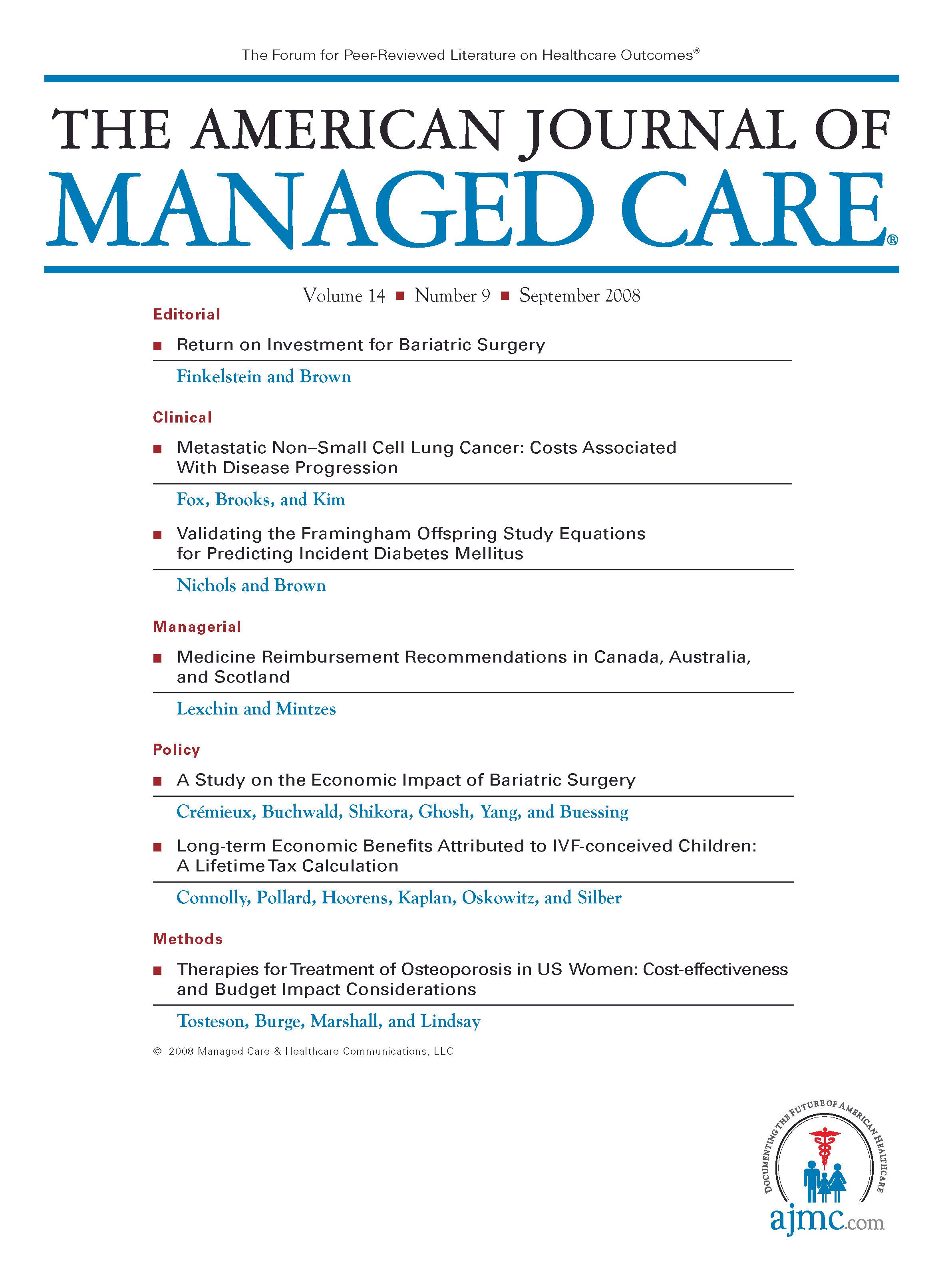- Center on Health Equity & Access
- Clinical
- Health Care Cost
- Health Care Delivery
- Insurance
- Policy
- Technology
- Value-Based Care
Failure to demonstrate an impact of computerized physician order entry embedded reminders
TO THE EDITORSThe article by Palen et al, in the July issue of The American Journal of Managed Care, which failed to demonstrate an impact of CPOE embedded reminders, was disappointing but not surprising.1 In this study, nonintrusive reminders for recommended laboratory monitoring were provided. There was no difference between the control and intervention group, as the results were dismal in each. Providers in both groups failed to order recommended laboratory tests almost half the time. Of the potential reasons offered for the failure of the intervention, none address the primary motivators in determining physician behavior. It is commonly accepted that physicians respond to 2 primary motivators–comparison to peers and financial gain. If the goal is adherence to recommended laboratory monitoring or other guidelines, a more effective adoption strategy would include prominently displaying compliance rates and attaching meaningful compensation to achieving desired outcomes.
Michael Patmas, MDMedical Director & VP of Medical Affairs
2650 Courtney Dr
E-mail: mpatmas@coihs.com
Reference
We agree with Dr. Patmas that "pay-for-performance" and peer comparisons are techniques that have proved useful in modifying physician behavior in practice. The peer comparison is a tool we currently use in our organization to show how clinical departments and individual physicians "perform" in comparison to their peers. However, the purpose of the current study was not to investigate how peer comparisons or "pay-for-performance" incentives can change physician behavior, but rather to evaluate the effectiveness of nonintrusive instructions / alerts within a computer physician order entry system at the point of care. We felt that adding an additional incentive program would introduce a second variable into the study design that could influence the results, thus making it difficult to interpret the impact of our primary intervention–introduction of noninstrusive alerts.
Ted E. Palen, MD, PhD, MSPHClinical Research UnitColorado Permanente Medical Group
E-mail: ted.e.palen@kp.org

Specialty and Operator Status Influence Electronic Health Record Use Variation
January 22nd 2026Operators demonstrated specialty-specific differences in electronic health record efficiency, timeliness, and after-hours use, highlighting how workflow and training shape documentation behaviors across medical disciplines.
Read More
Empowering Children and Parents Through Technology: Opportunities, Challenges, and Future Directions
January 15th 2026Digital health platforms improve pediatric care by offering customized, interactive tools for children and parents. They enhance education, support, and engagement while tackling challenges related to access, usability, and privacy.
Read More
Insights Into Patient Portal Engagement Leveraging Observational Electronic Health Data
January 12th 2026This analysis of more than 250,000 adults at least 50 years old with chronic conditions showed lower portal use among older, non–English-speaking, and Black patients, underscoring digital health equity gaps.
Read More
Subjective and Objective Impacts of Ambulatory AI Scribes
January 8th 2026Although the vast majority of physicians using an artificial intelligence (AI) scribe perceived a reduction in documentation time, those with the most actual time savings had higher relative baseline levels of documentation time.
Read More
Telehealth Intervention by Pharmacists Collaboratively Enhances Hypertension Management and Outcomes
January 7th 2026Patient interaction and enhanced support with clinical pharmacists significantly improved pass rates for a measure of controlling blood pressure compared with usual care.
Read More

